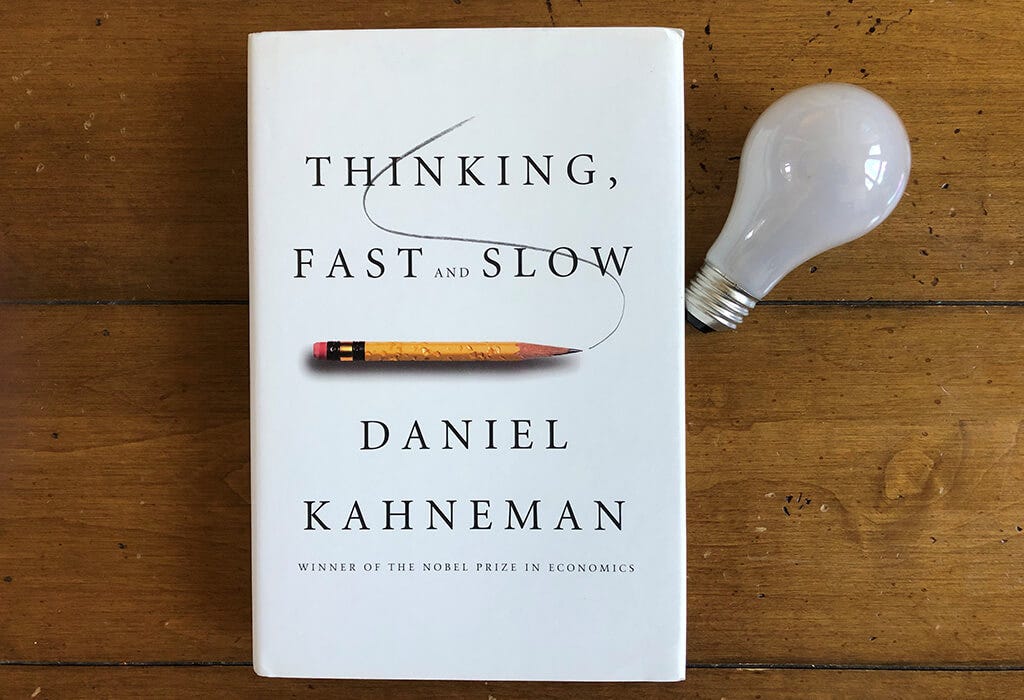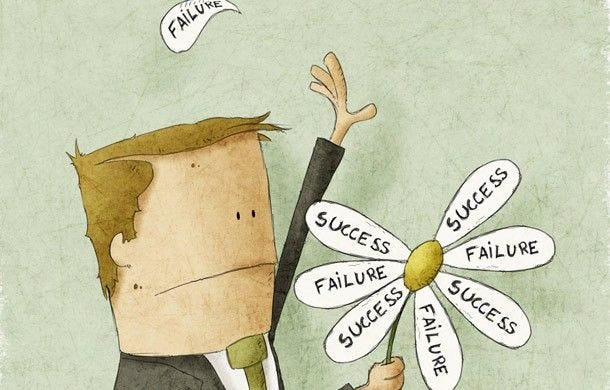"If it works for them, it might work for me!"
ANOTHER DAY
ANOTHER STARTUP THOUGHT
Hi founders, 👋
We’re opening up sponsorship opportunities for early-stage founders who want to showcase their startups to a highly engaged, targeted audience (potential customers, partners, and investors). You can find more details about this sponsorship at the link below:
Let’s be real.
We’ve all seen it.
You scroll past a post on LinkedIn or Instagram: "I quit my job, launched this thing in a weekend, and now I make $30K/month while I sleep."
Or maybe your friend swears by a “miracle diet” they found on TikTok, and suddenly they’ve lost 20 pounds and gained a new personality.
Or a YouTube video titled: “How I built a 7-figure business with no funding and no team!”
And for a moment, you think:
“Maybe I should do that too.”
If it worked for them, maybe it’ll work for me.
It’s a perfectly human reaction—and also one of the riskiest ways we make decisions.
The seductive power of stories
I’ve been reading Thinking, Fast and Slow by Nobel-winning psychologist Daniel Kahneman. And one thing that stood out to me is how our brains are wired to love and trust stories over statistics.
We feel a compelling story.
We relate to it.
It makes things seem simple and attainable.
Daniel Kahneman calls it narrative fallacy—the tendency to create a story to make sense of what happened, regardless of the actual data behind it.
So when someone tells us, “I built this business in 3 months and now I travel the world,” our brain latches on.
But here’s the trap: we remember the story, not the probability.
The truth?
We rarely hear the other 90% of the stories—the ones that didn’t end in a TED Talk or a viral thread.
90% of startups fail.
Most viral launches never sustain revenue.
Most creators make less than $500/month.
Most people who start miracle diets rebound in a few months.
But we don’t talk about most.
Our minds don’t register those outcomes because …
They’re not sexy.
They don’t make headlines.
They don’t get clicks.
We obsess over …
The few who win.
The unicorns.
The underdogs-turned-legends.
Anecdotes vs. Evidence
In behavioral science, there’s a name for this: availability bias.
It means we tend to overestimate the importance of information that’s readily available—like a dramatic success story—and underestimate the broader context or statistical reality.
Here’s a fun (and slightly depressing) fact:
You are more likely to be struck by lightning than win the lottery.
In fact, you’re 300 times more likely!
And yet, we still buy lottery tickets—because someone wins, right?
That’s how we treat startup stories too.
We all love outliers’ stories:
The girl who launched a Notion template that made $100K.
The guy who built an AI tool in a weekend and got acquired.
But those are the exceptions. Not the rule.
The problem with stories like those isn’t that they’re false—it’s that they’re incomplete.
You don’t see:
The founder’s 10 years of experience before the overnight success
Their pre-existing audience of 50,000+ followers
The dozens of failed ideas before this one
The funding, luck, or timing that isn’t replicable
We forget that a replicable strategy is very different from a viral anecdote.
If we let those stories become our strategies, we risk building castles on clouds.
And when you try to build a business based on something that “just worked” for someone else, you’re not building a company—you’re buying a lottery ticket!
The startup world is built on survivor bias, and the hidden cost of copying success stories
Let’s bring this home for founders.
The truth is, most startups fail.
Around 90% don’t make it.
That’s not just a number—it’s a reality check.
But think about what dominates your feed:
YC success stories
$1M MRR tweets
Founders who “scaled with no team and no funding”
Posts saying “I just launched this thing yesterday and woke up to 400 signups”
That’s survivor bias in action.
We only hear from the people who made it.







